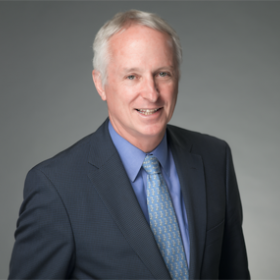
Cameron Munter Discusses Western Balkans
The President and CEO of the EastWest Institute talks to the Serbian news agency Tanjug about the upcoming visit of Serbian President Aleksandar Vučić to Washington and the latest developments in the Western Balkans region.
Tanjug: In your opinion, what will be the main issues in Mr. Vučić's agenda during his visit to the United States?
Munter: It all boils down to two words: pay attention! I can't say which specific items President Vučić will raise, but his overall message, I believe, will be that there are important challenges and the countries of the region need the United States to help find solutions. From governance in Bosnia or Macedonia to relations between Serbia and Kosovo, from economic integration among those in the region to accession to western institutions, he will certainly as Washington to engage. The United States sees President Vučić as a key figure in maintaining peace and stability in Serbia's neighborhood.
What can we expect from the U.S. administration when we are talking about protection of Serbian minorities in Kosovo and Serbian interests in the dialogue with Pristina?
You'll have to ask the U.S. administration about its policies, of course. During my time as a diplomat, we always emphasized the importance of democratic institutions, including the protection of the rights of minorities.
The U.S. and EU will do everything to help Western Balkan countries on their paths to EU, but we cannot expect their membership before 2030, said State department official, Mr. Brian Hoyt Yee in Belgrade recently. On the other hand, President Vučić asked in Brussels for acceleration of the EU integration process for Serbia and sort of a “special treatment” for our country. Do you expect that he will repeat that stance in Washington?
It has long been the policy of the United States to promote integration of Balkan states into western institutions, including the EU. This is certainly something that friends of the countries in the region care about. I'm currently working on a project with ambassadors Frank Wisner and Rosemary DiCarlo to provide the U.S. government with advice on policies that will contribute to the success of all countries in the region—and promotion of integration into western institutions will be a major piece of this.
What is the U.S. position on Serbia's relations with Russia, the Russian influence in the Balkans, and the Serbian-Russian Humanitarian Center? Is there any truth in speculations that the U.S. administration is also thinking about opening a humanitarian center in Uzice together with the EU and why?
Russia is a friend of Serbia, just as the United States is a friend of Serbia. I think it's wise for Serbia to work with both countries, since both are on record as supporting the Serbian goal of joining the EU and contributing to peace and stability in the Balkans. As for humanitarian centers, I suggest you speak with U.S. government representatives. Personally, rather than hyping a competition about humanitarian centers, I think the best contribution America can make is by increasing investment, taking advantage of the talent the countries like Serbia offer, and the promising sectors of the economy that have enormous potential for success.
What economic questions will be on the agenda during his meetings with U. S. officials?
I have no doubt President Vučić would like to promote economic opportunities in Serbia while he's in the United States. And I agree with him: economics and business is one the keys to future success. The EastWest Institute in New York, where I'm president and CEO, is also engaging again in Serbia and the region, and exploring opportunities for economic and business growth will be on our agenda too. In fact, I'll visit Serbia later this month and look forward to contributing to discussions on regional security, economic opportunity, and a reinvigoration of western commitment to the success of all countries in Balkans. I look forward to being back among friends in Belgrade.
Click here to read the interview in Serbian.

